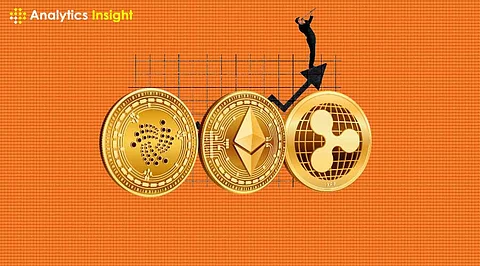

The GENIUS Act, a bill to regulate stablecoins, passed with a divided vote among Democrats, reflecting concerns about corruption and financial stability.
Argentina's government disbanded the task force investigating the LIBRA memecoin scandal involving President Javier Milei, despite ongoing prosecutorial review.
Kraken launched regulated crypto derivatives trading in the European Economic Area, offering perpetual and fixed maturity futures contracts under MiFID II.
On May 20, 2025, the cryptocurrency market witnessed several significant milestones, including an argument among US Senate Democrats on rules for stablecoins, Argentina’s president dissolving a task force on a crypto scandal, and Kraken extending regulated derivatives to Europe. Each event shows the ongoing changes and difficulties in the global crypto industry.
The GENIUS Act, a bill to regulate stablecoins, received a full vote in the Senate on May 19 after the Senate voted 66-32 to proceed. The vote reflected strong disagreements among members of the Democratic Party. Sixteen Democratic senators broke ranks to support moving the bill forward despite earlier opposition.
Some Democrats had withheld support earlier in May due to concerns about President Donald Trump’s involvement in cryptocurrency activities. The legislation’s opponents argued that the bill failed to address alleged corruption linked to the Trump family’s crypto dealings. However, the final version did not include provisions related to the Trump family’s crypto venture, World Liberty Financial.
Senator Mark Warner, a moderate Democrat, supported the bill, emphasizing the need for regulatory progress despite its imperfections. He said blockchain technology is “here to stay” and that the US should avoid falling behind other countries in regulating stablecoins.
Senator Kirsten Gillibrand, a bill co-sponsor, agreed that concerns about Trump’s conduct should be handled separately from the broader goal of establishing a clear regulatory framework in the US. However, progressive Democrats such as Senator Elizabeth Warren opposed the bill, warning that it could undermine financial stability and consumer protection.
Senator Michael Bennet introduced an alternative bill to restrict elected officials from endorsing digital assets. Although unlikely to pass, the move highlights ongoing disagreements among Democrats on crypto regulation approaches.
Argentina’s government shut down an investigative task force probing the Solana-based LIBRA memecoin scandal involving President Javier Milei and his sister. This decision came just days after a judge ordered the unsealing of their bank records.
Earlier in 2025, Milei publicly promoted LIBRA, a memecoin launched by Delaware-based Kelsier Ventures. The token’s price soared briefly before crashing by more than 90 percent, prompting an investigation. Allegations emerged that payments were made to influence Milei’s sister before the token launch.
Milei later retracted his support, claiming no advanced knowledge of the project and stating his interest was purely in economic growth. The closure of the task force was announced by Argentina’s Justice Minister, who stated the unit had fulfilled its purpose. Meanwhile, prosecutors continue reviewing evidence related to the co-founders’ financial activities.
Also Read: Bitcoin Beats Gold in Price, But Can It Hold as US Fiscal Instability Grows?
Kraken, a major cryptocurrency exchange, announced the launch of regulated crypto derivatives trading in the European Economic Area (EEA) under the EU’s Markets in Financial Instruments Directive (MiFID II). The products include perpetual and fixed maturity futures contracts.
In February, Kraken’s head of exchange, Shannon Kurtas, said the expansion reflects the growing demand for regulated digital asset products in Europe. The exchange acquired a MiFID license through a Cypriot investment firm, enabling it to offer derivatives to retail and institutional clients across Europe.
Adding derivatives is expected to improve capital use, boost liquidity, and open the door for expert trading strategies. NinjaTrader’s acquisition by Kraken is part of the company’s ongoing efforts, which coincide with rising interest from Europe’s leading exchanges in offering regulated crypto futures.
